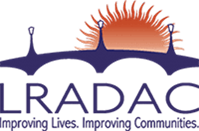
As a healthcare issue, treatment for substance use disorders must comply with the Health Insurance Portability and Accountability Act of 1996, or HIPAA. This federal regulation protects the privacy and security of health information. Additional legislation specific to patient records at alcohol and drug treatment facilities require an additional layer of security to help ensure a client’s or patient’s right to privacy. As an accredited treatment provider, LRADAC complies with state and federal regulations which require us to maintain the highest standards of confidentiality.
From a historical perspective, recovery from substance misuse is deeply rooted in a culture of anonymity. For example, since 1935 millions of people have found help for alcohol misuse through Alcoholics Anonymous (AA), an organization that encourages members to remain anonymous and avoid disclosing their affiliation with the organization in the press, radio, films, and now social media. The success of AA has resulted in similar 12 Step fellowships including Narcotics Anonymous (NA), Al-Anon, and Alateen. In contrast to the principle of anonymity, organizations such as Faces and Voices of Recovery (FAVOR), aim to raise the profile of the recovery community. Many people in recovery tell their story publicly to encourage others struggling with substance misuse to seek help. In fact, a documentary titled The Anonymous People released in 2013 encourages persons in recovery to break their silence and proudly share their stories of recovery in order to reduce the stigma of substance use disorders and mobilize legislation that supports the recovery community.
Whether a person prefers to keep their recovery private or share about it publicly,
LRADAC works each day to ensure client confidentiality and to provide a pathway to long-term recovery that works best for the unique person. LRADAC also welcomes personal testimonies from persons in recovery to help further the awareness of treatment services and the power of recovery.
(For more information on Alcoholics Anonymous, visit aa.org. To view The Anonymous People, you can find the film on DVD and streaming services including Netflix, Hulu, Amazon, iTunes, Google Play, Vudu and Vimeo One Demand.)[vc_video link=”https://www.youtube.com/watch?v=bqoEtUn0Agw”]

